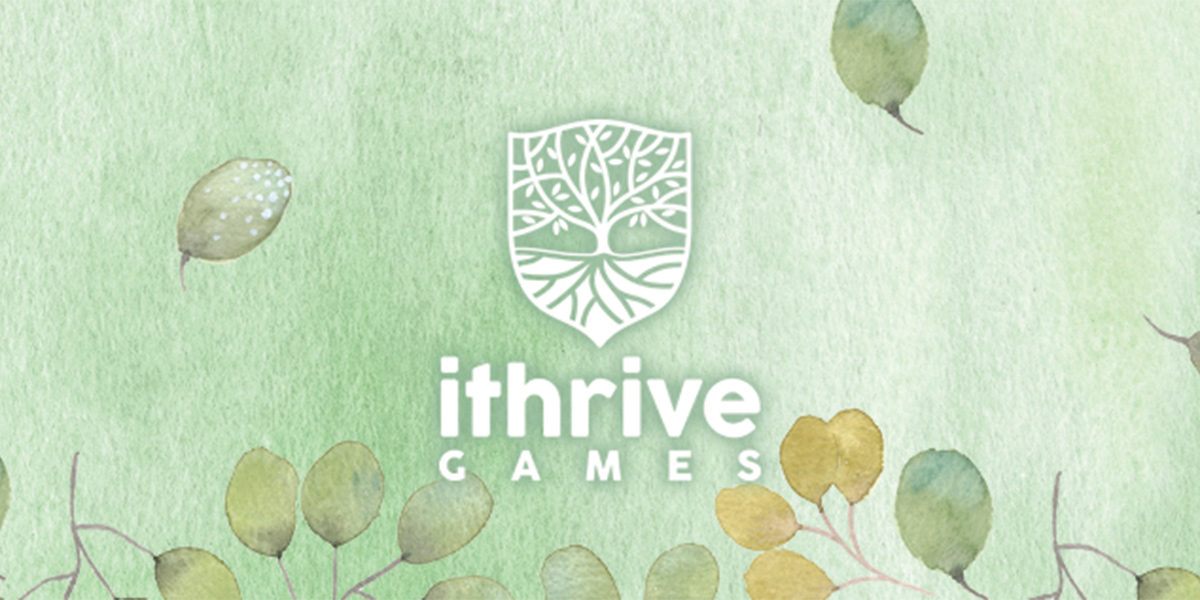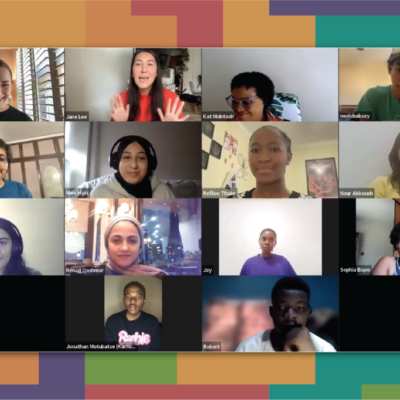
From Our Founder: iThrive’s Origin Story
Dorothy Batten, founder of Thrive Games, shares our origin story.
The following piece was authored by Dorothy Batten, founder of iThrive Games and the DN Batten Foundation.
In my life, I've endured bullying, natural disasters, divorce, cancer in the family, accidents, surgeries, physical disability, and two near-death experiences. Still, I consider myself lucky. My life has never come to a standstill, and I have always picked myself up and moved forward. I've sometimes wondered, what is it that makes me resilient?
For one, I've had positive mentors. They have modeled for me the importance of having integrity, being respectful and fair, and making meaningful contributions to my community. Having come from a long line of hardworking and successful business people in my family, I also learned that if I followed my passion, worked hard, treated others well, and sought meaningful experiences, I would thrive.
Second, I've learned from positive psychology that I have a secret weapon to wield in all the roles I play, including businesswoman, philanthropist, counselor, mom, and human: my strengths. According to the VIA Character Strengths survey (which you can take here for free) one of my five signature strengths is perspective, which www.viacharacter.org says includes the ability to see situations from multiple sides, think in meaningful ways about life and how to live it, and to share helpful advice.
Perspective is one strength that's given me the ability to bounce back from hardships. In a way, it also catalyzed the initiative called iThrive. Let me explain. I credit my strength of perspective for the fact that I have always played the role of therapist among my friends. I've also had close relationships with people struggling with depression, anxiety, obsessive-compulsive and bipolar disorders, and substance abuse. I became interested in studying counseling, thinking that if I was going to be the person my loved ones came to for guidance, then I wanted to be well informed. But life and work always gave me some reason not to do it, just yet.
Then, a few years ago, I was in a fluke accident that shattered my leg, requiring three surgeries that left me unable to walk without assistance for a year and a half. Not able to work, I finally decided to take this (quite literal) downtime to get that second master's degree in counseling.
While I was enrolled in the counseling program, I stayed at home a lot with my two teenage sons, nursing my leg back to health while I studied. It was then that I began to notice how much time my boys were spending on the computer playing video games.
At first, like many parents, I nearly made myself hoarse pleading with them to "Pleeeeeease turn that computer OFF!!". I was worried they weren't doing more productive things. I wondered whether they'd be prepared to handle the "real world." Would they have the resilience they needed when hard times inevitably came?
But my angst over their gaming soon transformed into new insight. While working on an independent study, I learned about computer programs designed to deliver mental health interventions. It turned out that they showed promise for improving well-being. It struck me—computer games can be therapeutic! I was excited by this idea, but when I tried a couple of the programs, I was underwhelmed. They were well-intentioned, but I found them so unappealing that they were difficult to stick with. A lightbulb went off for me: "These programs would be so much more engaging if they were more like those games my kids are glued to. And, couldn't video games teens love also offer meaningful experiences that boost their well-being and resilience?"
As I reflected on this, it made more and more sense to me why my sons, and teens in general, were increasingly drawn to video games. Teens are stressed, these days even more than adults. Sure, adolescence was tough and awkward for me too, but I saw my sons and their friends distressed over things my generation didn't face to the same degree. Among them: the increasingly competitive race to get into college, the constant barrage of photoshopped celebrities, and the potential for envy and public embarrassment made possible by a life lived on social media. Video games are worlds where teens can go on their own terms to experiment, be creative, assume different roles and identities, practice expressing themselves, get into the 'flow-zone', and forget about their problems for a while. What a cathartic way to take some of the pressure off! But, I wondered, could these games be doing double duty, teaching kids how to cope better?
Of course, I wasn't the first person to make the connection that video games could teach meaningful skills-research on games-based learning started to really take off around the mid-2000s. But I did see an opportunity to bring another of my passions—positive psychology—into the conversation. Instead of just addressing illness, stress, and disorder, positive psychology says we can foster well-being by looking through the lens of our strengths. I became motivated to make that insight actionable for teens in the virtual worlds where they already are and want to be.
I founded iThrive to ensure that teens are finding in video games the positive, meaningful experiences they need to not only cope with stress but to find their strengths and thrive. Existing games have this potential, but we also could be designing for it more deliberately. And although research on the positive impact of video games is still in its early stages, I believe that under the right circumstances, gameplay can provide opportunities for teens to practice new skills, discover new perspectives (and new things about themselves), learn about others, exchange ideas, and collaborate.
I also witnessed how video games can provide a safe space for teens to practice coping strategies to deal with social challenges and failure. In online social worlds, just like in schools or any other place teens gather, bullying can and does happen. But, as my oldest son told me, he learned by being on the receiving end of aggressive behaviors in video games that reacting to bullies and taking their attacks personally never helped. Instead, he learned to disengage from them, mute them out, and remain focused on his own path.
With each day, video games augmented reality, and virtual reality is becoming more realistic and engaging, making them even more enticing for teens (and adults too!). It makes sense to meet teens where they are already spending so much of their time and to take advantage of the appeal of these technologies to promote teens' positive growth. Because gaming technology is advancing so rapidly, there is almost unlimited potential to create simulated, safe environments, using compelling stories, creative challenges, and evocative dialogue, to help teens gain self-awareness and learn skills that empower them to take the driver's seat on their own path to thriving.
My new perspective: video games can empower teens to thrive. I founded iThrive Games to discover how.

